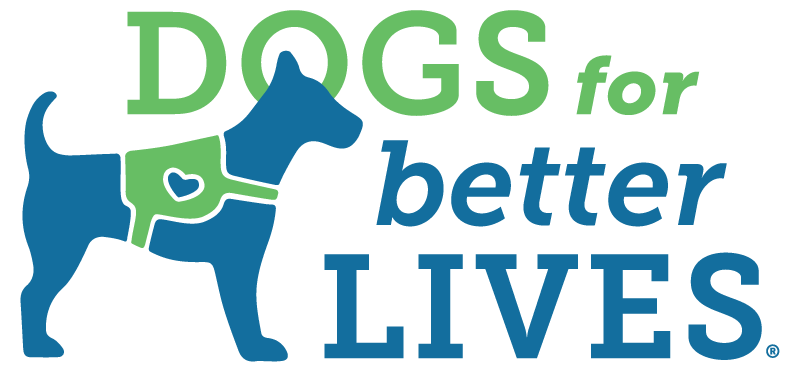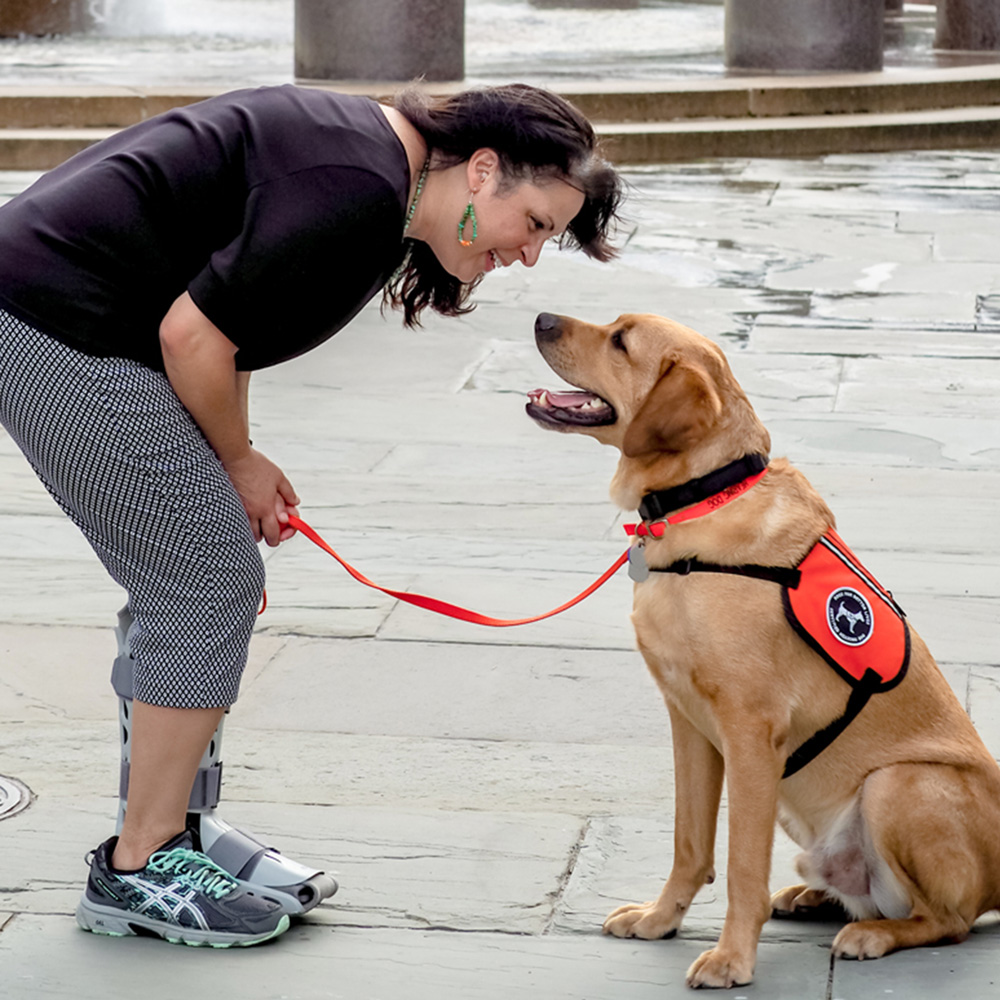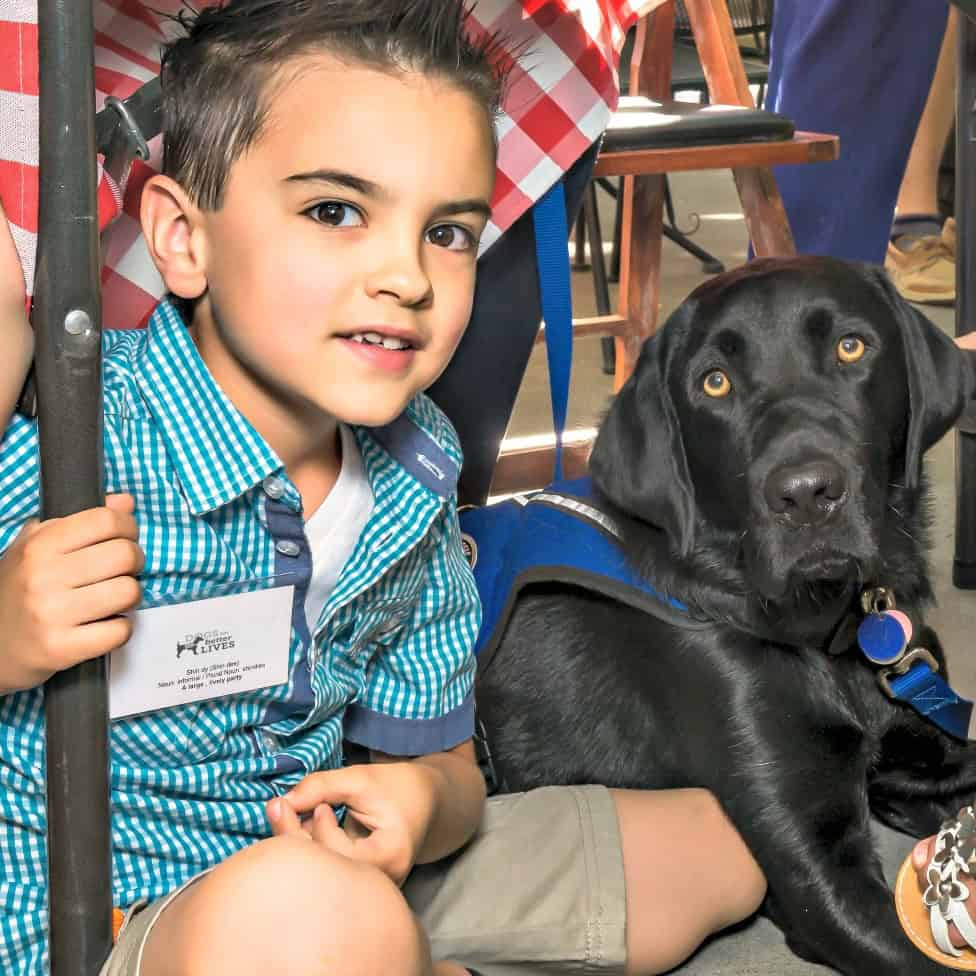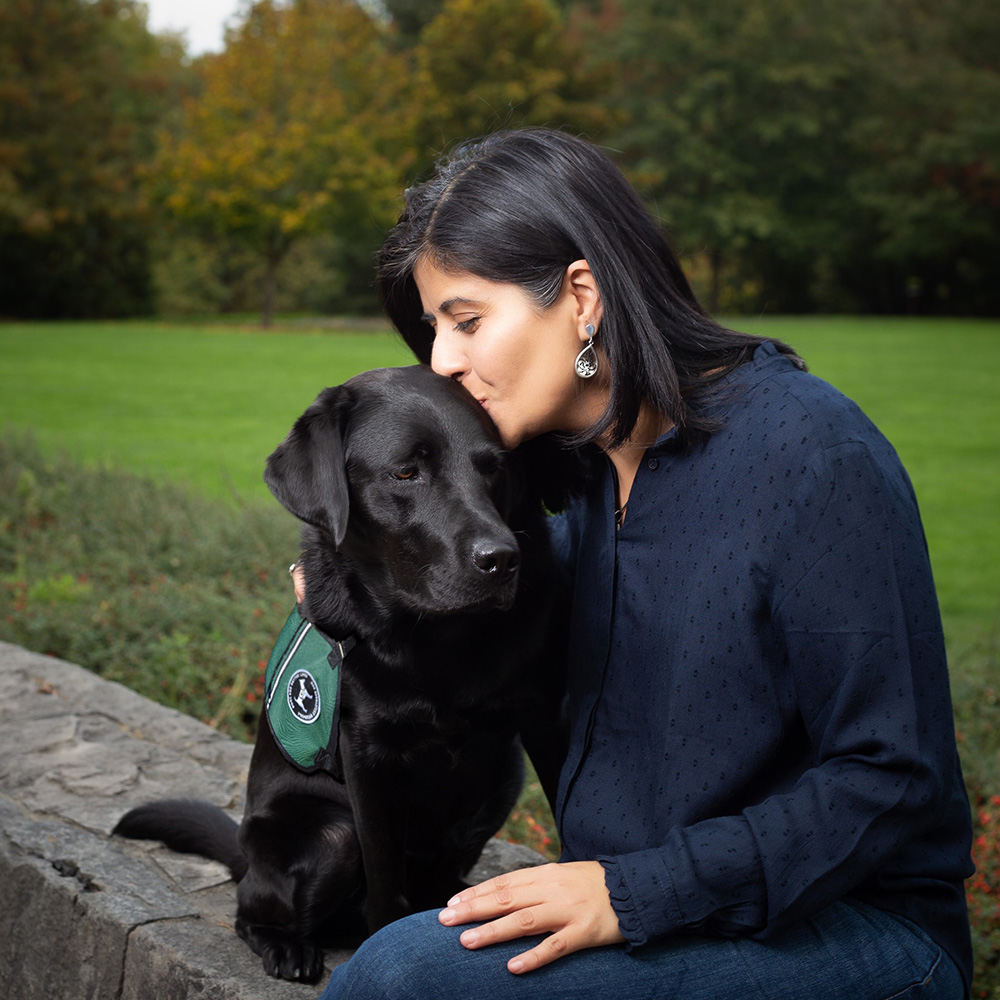Every month, nearly 10,000 people type into search engines: “How do I get a Service Dog?”
At Dogs For Better Lives, it is our greatest joy to see one of our professionally trained Assistance Dogs (aka Service Dogs) placed with a person or family in need. We are a national nonprofit organization with a mission to make our Assistance Dog placement program as simple and streamlined as possible for both you and your pup!
We’ll show you how to get started, but first…
Q: What is a Service/Assistance Dog?
A: The term Service Dog is used a lot in public these days. Unfortunately the title is sometimes applied to dogs that are not truly Service/Assistance Dogs. Rather, these dogs are better described as Emotional Support Dogs, or Therapy Dogs.
It is important to note that a true Assistance Dog helps a person who has a disability. This could be a visual impairment, hearing impairment, mental disorder, seizures, mobility impairment, or diabetes. Assistance Dogs work for a living, and they work hard!
While they both certainly serve valuable purposes, an Assistance Dog and an Emotional Support Dog are not the same thing. And the process for getting an Assistance Dog is completely different than the process for getting a Therapy Dog.
Assistance Dogs go through rigorous training programs with a handler, and must submit to the legal restrictions of an Assistance Dog under the Americans With Disabilities Act. In order to get an Assistance Dog, you must partner with a certified organization (such as DBL). Emotional Support Dogs, on the other hand, are not required by law to have any specific training.
Q: What Are Assistance Dogs Used For?
A: There are many different types of Assistance Dogs, and some even serve multiple purposes, including:
- Guide Dogs for visually impaired persons
- Hearing Assistance Dogs for deaf or hearing impaired persons
- Seizure Response Dogs, specially trained to protect and help someone with a seizure disorder whenever a seizure occurs
- Autism Assistance Dogs serve children who have been diagnosed with an autism spectrum disorder. Autism Assistance Dogs are specially trained to enhance the safety and well-being of children and families living with Autism by providing a minimum of three tasks to assist with keeping children grounded and focused while presenting a social bridge for relationships and friendships.
- Diabetes Assistance Dogs, specially trained for detecting blood sugar highs and lows
- Facility Dogs, working with professional physicians, teachers, and counselors, and assist patients or students with PTSD, anxiety disorders, severe depression, autism, and more
Dogs for Better Lives has been training professional Assistance Dogs for over 40 years, to serve as Hearing Dogs, Autism Assistance Dogs and Facility Dogs.
Q: How Can I Get an Assistance Dog?
A: At Dogs For Better Lives, our team aims to make a difference in the lives of our clients, dogs, trainers, and owners. We select the dog best suited to you from the dogs that are available to us, based on your lifestyle, activity level, home environment, and previous experience with dogs. For this reason, we require applicants to submit an online application. We want to make sure your needs suit the capabilities of one of our specially trained dogs. The process is as simple as that!
Thanks to our outstanding donors, we are able to offer these dogs at no cost to their person. Once you have filled out the application, we do the rest.
If you qualify for one of our Assistance Dogs, we take the time to partner you up with the perfect match for your needs. A disability should never hold you or your loved one back from living life to the fullest. We train our special pups to assist you with that goal in mind.
If you’ve been trying to figure out how to get an Assistance Dog, look no further and fill out an application on our website today!






I have social anxiety and depression w bipolar..I am looking for a dog to help me in public to be able to cope w people..do you think you can help?
Tracie, thank you for reaching out to us. Someone from our Client Services team will reach out to you directly. – Harvey
I am 26 and have autism and depression do I qualify for a service dog? I think I also have anxiety…
Christan, Thank you for your interest in DBL and our Autism Assistance Dog program. Currently we are serving children throughout the states of Oregon, California, and Washington who are between the ages of 4 – 11. You can learn more about our guidelines here, https://dogsforbetterlives.org/autism-dogs/.
We are desperately looking to locate a Seizure Response Dog for my son that lives in Port Orford, Oregon.
Hi Karen. Thank you for reaching out to DBL. Unfortunately, not a type of Assistance Dog we currently train for. I would suggest that you visit Assistance Dogs International’s (ADI) website, also DBL’s accrediting body, and search on organizations that provide Seizure Response Dogs. Best of luck! – Harvey
I am severely hard of hearing. I do wear hearing aids but still miss sounds and people trying to get my attention if they are distant. I love dogs and would feel safer as well as enjoy the companionship.
How can I get a dog?
Thank you for your comment. You can learn more about our Hearing Dogs and apply at dogsforbetterlives.org/hearing-dogs